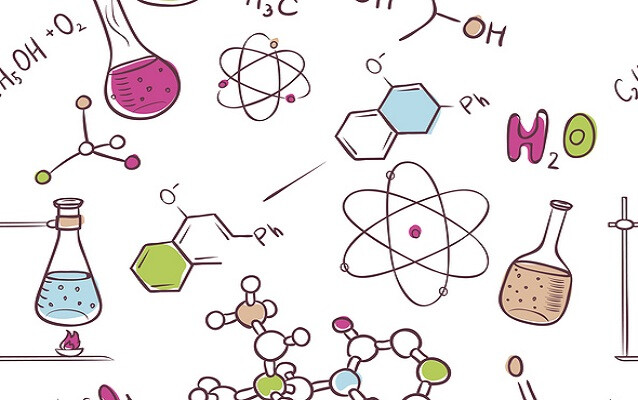How do I prepare for organic chemistry for IIT JEE advance?

JEE Mains has 10 organic questions (most likely) and completing a few points can give you a really good score. The best part is that it rarely takes 7 to 10 minutes to score 40 points(10 * 4)
Do not ignore the reactions mentioned in the NCERT manual, but review the reaction mechanisms mentioned in the NCERT manual.
There are no direct questions about the mechanism, but it will help you remember the reaction. It also solves some difficult problems.
Start with a good understanding of general organic chemistry, pay more attention to basic concepts, and move on To the reaction section. Basic concepts such as the strength of acid radicals are important to understanding the mechanism.
Do not skip the last three chapters of NCERT Handbook 12 (Part 2). Organic should seriously read at least one reaction/concept per day.
Do multiple questions (avoid questions based on answers not included in the NCERT). Solve/work on more conceptual problems. Solve doubts about the basics Typically, the questions asked in the exams are simply repetitions of the previous year’s questions. Honestly answers to all questions from the previous year It will give you an idea of the depth and level of questions. Check out Himanshu Pandey’s book and Paula Bruce’s book for a workaround and don’t use WhatsApp and Facebook.
To prepare for organic chemistry for IIT JEE Advanced, you can follow these steps:
- Study the NCERT textbook: This is the most important step as the IIT JEE questions are based on the NCERT syllabus.
- Practice problems: Make sure you practice a variety of problems from different sources to test your understanding.
- Memorize important reactions: Organic chemistry is all about reactions, so make sure you memorize the important reactions thoroughly.
- Know the mechanisms of reactions: It’s crucial to understand the mechanism of each reaction, as questions on mechanisms are frequently asked in the exams.
- Understand the concepts of isomerism: Make sure you have a good grasp of the different types of isomerism and how they are formed.
- Use study aids: Consider using study aids such as flashcards, mnemonics, or summary sheets to help you remember key information.
- Practice previous year papers: Solving previous year papers will help you understand the pattern of questions and the level of difficulty of the exam.
- Seek help: Don’t hesitate to seek help from your teacher or a tutor if you’re struggling with a particular topic.
Remember, regular practice and perseverance are the keys to success in organic chemistry.
Do connect with exprto with such personal guidance and mentorship .

- Basics of Organic Chemistry
This itself is a big topic. It involves topics like Nomenclature, Isomerism(stereo and structural), Electronic Effects, Acidic and Basic strengths, bonding in Organic compounds, basics of Organic reaction mechanisms, Practical Organic Chemistry. Now these are some really important topic and every coaching class has a different way to approach them. We were taught these concepts as and when they were required. You should follow whatever approach you are being taught. If you attend a proper coaching, then concentrate on their teaching and sheets. If not, then there are plenty of books out there, to help you, keep reading.
- Reaction part
This is the essence of Organic Chemistry. 90% of questions asked in Organic chemistry are from reactions. This includes Hydrocarbons, Aromatic compounds, Alcohols, Phenols and Ethers, reactions of acids, Grignard Reagent, Oxidation/Reduction, etc. The list is very long. There are a lot many reactions in this section. But panic not. These are taught in a very structured way in Coachings/Books. Follow their way, and be regular. Remember stuff up as soon as they are taught. Maintaining a reaction+mechanism+exception diary helps. Revise it everytime before you sit to study Organic Chemistry. Constant revision is the key here. Understand the mechanisms really well. A lot of questions are asked in JEE(Advanced) based on mechanism.
They would change the reaction a bit and they will ask you the product. You can solve it only if you have an understanding of the mechanism.So, the main thing is- keep all the reaction, reagents, and exceptions on your tips, and have a good understanding of mechanisms. Practice them by writing them down till you remember them. Solve a huge number of problems as they will help you remember the facts.
Also, a good understanding of Basics of Organic Chemistry is also important, otherwise you won’t be able to move ahead. So strengthen that first.Self study people can pick up a good book(keep reading) and start from there. Try to obtain a good coaching material to practice from. Youtube tutorials can help you understand mechanisms.
- Biomolecules and miscellaneous part
This is relatively easy. It is important, as at least 1-2 questions are asked from the chapter ‘Chemistry in everyday life’. Just mug up this chapter from NCERT. This is it. It will cover Boards, JEE(Main), and JEE(Advanced) all at one go. Then comes biomolecules. This is an interesting chapter, and JEE has asked some really tough questions from this chapter. Remember all Amino acid structures, if you can, as there was a question in JEE 2014 based on this. There are lots of concepts and structures, specially in Carbohydrates and Proteins, be familiar with them.
Join Exprto for more answers